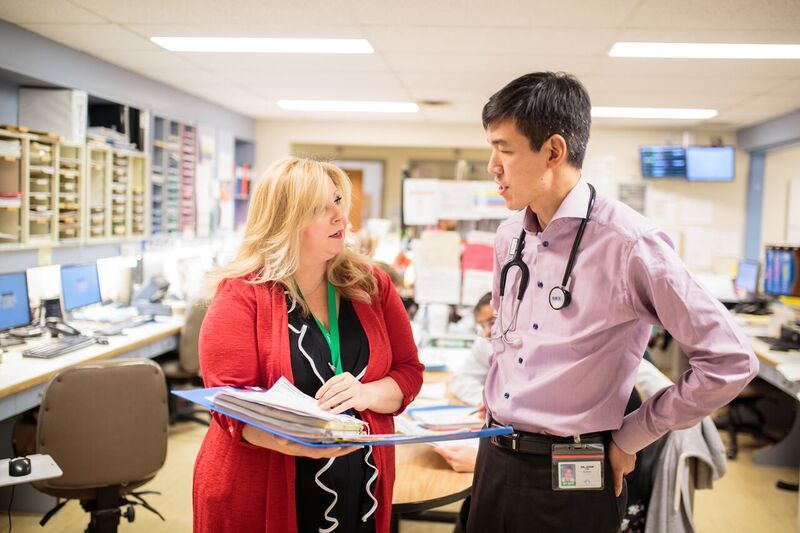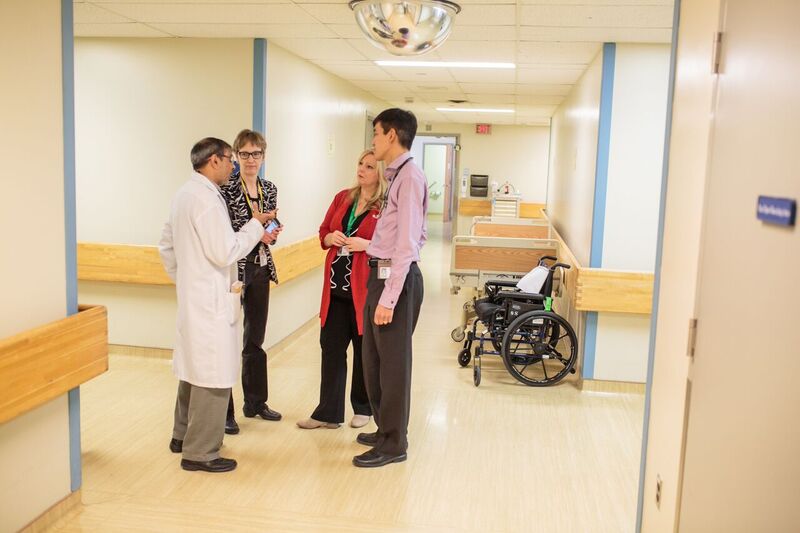
Championing end-of-life communication
Talking about death is never easy, especially when it’s your own mortality or a loved one’s in question.
It can be equally difficult for health care providers to raise the topic with patients and their families. To remove this barrier, a new project at Hamilton General Hospital (HGH) is looking to empower clinicians with the skills they need to ask the right questions.
According to Dr. John You, a doctor in the department of medicine who is leading the project, this problem has deep roots in the health sector.
“The modern health care system as a whole has tended to focus on diseases and not people,” he says. “Doctors and clinical staff are trained to diagnose an illness, develop a treatment plan and get them on the road to recovery. Historically, the focus of training is much more about treating the illnesses, not the patients.”
Putting research into practice
Dr. You is a leading thinker in the area of end-of-life communication and decision making. His research has found that a disconnect exists between patients’ end-of-life goals and the care that they actually receive. In 2014, he published a collaborative national study which involved almost 450 patients and family members looking at end-of-life communication. Health care providers should discuss 11 key elements with a patient regarding their end-of-life care, but the study showed that on average, only 1.4 were raised. This can negatively impact a patient and family’s satisfaction with their experience.
“Honest and open communication builds trust and, ultimately, it empowers patients to advocate for themselves about what really matters to them in the end.”
Dr. You turned these insights into action and launched the Serious Illness Care Program communication training pilot at HGH. Based on collaboration with colleagues at Harvard University, the program empowers clinical staff with the skills, knowledge and confidence to connect with patients about their goals of care. The pilot, which launched in late February, is running in three medical units at the hospital, and physicians have been receiving the situation-based skills training.
“By training physicians to take the time to ask the important questions, we hope to encourage more, earlier and better communication between a patient and their care team. Honest and open communication builds trust and, ultimately, it empowers patients to advocate for themselves about what really matters to them in the end,” says Dr. You.
Building a strong team
As the program’s Nurse Champion, Shelley Weniger is responsible for managing operations. This includes identifying the right patients and setting up meetings with the patients, their families and substitute decision makers. At this stage, she’s generally looking for patients with a chronic diagnosis who have about one or two years left with the illness. Patients are often older, but suitability is more about illness than age.
“We’ve identified patients in their 50s through to those in their mid-90s,” she says. “The more important piece is determining their capacity to understand the discussion and figuring out who else needs to be involved. Patients often get called into meetings expecting something but they don’t always get what they expected. This approach changes that.”
Patients are notified up front about the nature of the meeting and the communication is simple and honest, free of technical language and jargon. The meetings are usually 30 minutes, which is much longer than a typical discussion with clinical staff. In the meetings, patients are asked a variety of questions, such as “how much information do you want to hear from me about your health?” and “what’s most important to you at the end?”
“This process has also made us think about our own mortality and what we want our last days to look like. No one knows when their time will come and its not too early to start thinking about it, even if it feels a little morbid to do so.”
For Nansi and Linda Bagley, this open approach to communication is appreciated. As substitute decision makers for their father who has multiple illnesses including dementia, they’ve had extensive interactions with the health system. Being part of this program has forced them to think about what’s important for their father, but also for themselves.

“The nurses made us feel very comfortable and allowed us to speak freely for him about his wishes. They really listened,” says Bagley. “This process has also made us think about our own mortality and what we want our last days to look like. No one knows when their time will come and its not too early to start thinking about it, even if it feels a little morbid to do so.”
Engaging the circle of care
This program is also working to eliminate another communication challenge – information sharing between hospital-based care teams and family doctors. The conversations from these meetings are dictated and accessible by family doctors to ensure they are aware of the patient’s wishes as well.
“Conversations at the hospital can be overwhelming and patients often have questions when they leave the hospital. This builds transparency in the system and accountability for all health teams to be aware of and understand a patient’s wishes,” Shelley said.
The pilot will run for the next six months and will be evaluated for expansion at that time. Looking into the future, Dr. You sees many applications for the knowledge gained in this program.
“I’m excited to take the lessons learned and roll it out to all areas caring for patients who have serious illness across HHS. It doesn’t have to stop there, the skills being taught in this program can be applied to almost any line of patient care at our hospital and others.”
